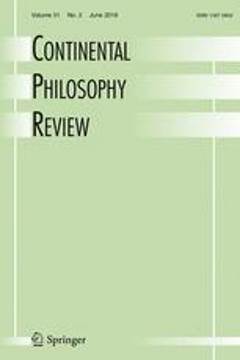Repository | Journal | Volume | Articles

(2018) Continental Philosophy Review 51 (2).
Much of the contemporary discussion of religion seems to do away with the very possibility of revelation. In this article, I use Lacoste’s phenomenology of la parole to rethink a theology of revelation in terms of God’s personal self-giving in experience. After examining Lacoste’s views of the relationship between philosophy and theology, his liturgical reduction and what this means for an understanding of experience and knowledge, and his thought of la parole more broadly, I give critical consideration to how he thinks the possibility of God’s address to humanity. Lacoste maintains that God’s presence in experience may be known through affection, and, indeed, that the word may so move us that we are able to recognise that presence. He uses the notion of self-evidence rather than the usual phenomenological category of evidence to evince the reasonableness of this response. I argue that while Lacoste accords due deference to a traditional understanding of revelation as the repetition or unfolding of a word addressed to us in the past, his thought also allows us to think revelation as a contemporary event, the hermeneutics of which allow us to know God in ways that are new.
Publication details
DOI: 10.1007/s11007-017-9420-x
Full citation:
Horner, (2018). Words that reveal: Jean-Yves Lacoste and the experience of God. Continental Philosophy Review 51 (2), pp. 169-192.
This document is unfortunately not available for download at the moment.



